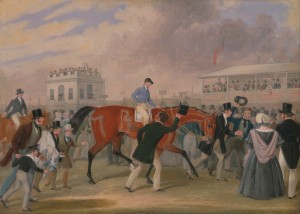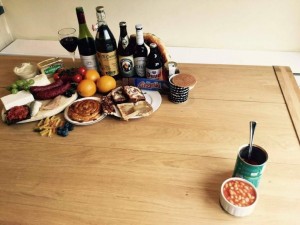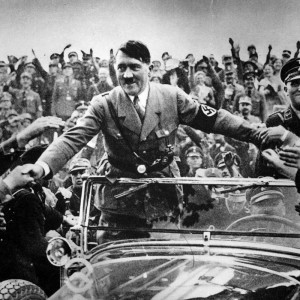
For here are the people: Britain by Mass Observation since 1937
by Frank MacPherson | January 1, 2015
“While Europe was tensely watching the crisis over Czechoslovakia, Herr Hitler paid a surprise visit to the French frontier to-day.” So began Britain by Mass Observation, a 1939 Penguin Special by Charles Madge and Tom Harrisson. They were not endorsing this characterization of the start of the war – rather, they wanted to interrogate the narrative behind this reading more carefully. “Of course, that is assuming that Britain, and the rest of Europe, really were at that time ‘tensely watching’,” the authors caution. “But were they? How many were more tensely watching the racing news and daily horoscope? That is another kind of fact we shall not know without trying to find out.” Madge and Harrison were the first people to ask this sort of question, drawing attention to details of everyday life that had previously been ignored. The questions they asked were not about politics – they were less obvious than that. What could be done? What would they do if war breaks out? Do they believe in a crisis at all? Some of the questions had no overt bearing on current affairs at all, and the answers would reflect this – they asked all the regular attendees of the Free Style Wrestling Club in Bolton (or ‘Worktown’ as it was known in their reports) what ten things, in order, were most important for human happiness. The most popular choices were: 1. knowledge, 2. security, 3. equality, 4. humour, 5. pleasure, 6. action, 7. religion, 8. leadership, 9. beauty and, in last place, politics.
Along with Madge and Harrisson, Humphrey Jennings, the founder of British Documentary Film, had together begun the ‘Mass Observation Survey’, creating what they described in a letter to the New Statesman as an “anthropology of ourselves”. The survey started in 1937 and ran until the early 1950s. It documented people’s everyday lives in Bolton and London through a combination of investigators paid to interview people, and volunteer observers (‘observing’ being the more informal, or even secretive, approach). In 1949, Mass Observation was registered as a limited company and became dedicated to market research – a different sort of “anthropology of ourselves” from that which the founders had in mind and the project stagnated until its revival in 1981.
“Mass Observation reveals moments of great insight and poignancy about the attitudes of the nation”
MO reveals moments of great insight and poignancy about the attitudes of the nation. The theatricality of wrestling has always drawn the attention of artists and observers. But the techniques of MO are able to explore what it meant for its audience. One observer submitted the following statement:
‘Went home by car, very crowded with people coming from the performance. Suddenly felt very depressed. Wondering about this change in my mood and searching for the possible cause, I found myself thinking, how terribly degenerated are those men around me, small, narrow shouldered, how different were those in the ring. What a poor thing is our civilization’.
The date of the first survey was chosen to coincide with the coronation of George VI in 1937: May 12th. ‘May 12th is likely to be quite an ordinary day, but for those researching, the ‘ordinary’ can provide extraordinary results’ explains the MO website. Ordinary people were given an open-ended request to record everything that came to their attention. The diaries kept by participants in those early days provide an incredible tapestry of reports that illuminate the normally murky process of individual events being pulled out, submitted to memory, and then committed, through the archive, to history. For instance, these two answers to the question: ‘What shall you do if War breaks out?
Business man, 33: ‘ARP [Air Raid Precautions] Warden. Been in it from the start. Stick at my post till done for. Some use helping people not to panic. Think shall not panic myself. Expect to enjoy feeling useful. Life all along has seemed rather pointless. Hope that the end, if that was the end, might be worth while”.
Wife and Mother, 42: “I have been collecting poisons for some time with guile and cunning. I have sufficient to give self, husband and all the children a lethal dose. I can remember the last war. I don’t want to live through another, or the children either. I shan’t tell them, I shall just do it.”
On the 12th May this year, I would urge everyone to ‘become an Observer’: go on the website, sign up, and submit your diary. As Madge and Harrisson put it: “Through this welter of public opinions and percentages, local traditions, and mass habits, it must not be forgotten that each and every person is automatically an individual, conforming outwardly, covering his or her private parts like everyone else, but underneath with repressions and furies that are partly personal.”




